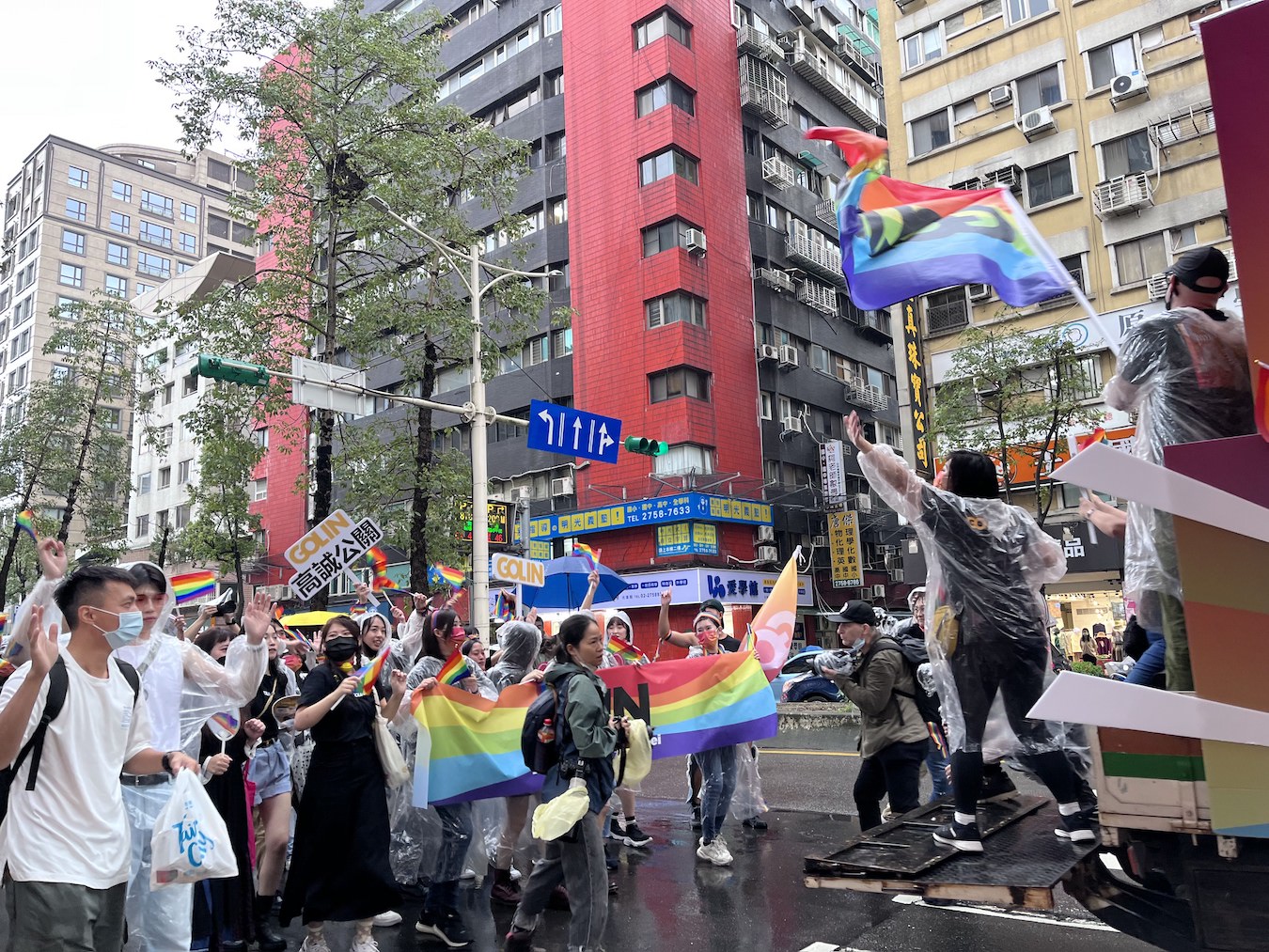
by Brian Hioe
語言:
English
Photo Credit: Brian Hioe
IN ONE OF the last outgoing acts of Premier Su Tseng-chang’s cabinet, the Ministry of the Interior (MOI) announced that restrictions on transnational gay marriages would be lifted last night. This took place through the MOI issuing a letter to the Department of Household registration asking it to amend relevant procedures. It is expected that the changes will be implemented after the Lunar New Year.
Gay marriage was legalized in Taiwan in May 2019. This took place after a 2017 ruling by the Council of Grand Justices that specified that gay marriage would have to be legalized within two years. The legislature would need to specify the language to legalize gay marriage or gay couples would automatically be able to marry once the deadline was reached, provided no action was taken.
The legalization of gay marriage was not without obstacles, including efforts by conservatives to prevent its legalization through a 2018 national referendum. Though the referendum was actually successful in voting down the notion of legalizing gay marriage through amending existing laws, rather than the addition of new laws, gay marriage was still legalized. To this extent, the text of the law saw a significant degree of political contestation before the deadline set by the Council of Grand Justices.
Facebook post by Premier Su Tseng-chang about his actions before stepping down
But some restrictions remained. Taiwanese nationals were only allowed to marry individuals that are from countries that had also legalized gay marriage. Moreover, for adoption rights, for adoption to take place, the child must be the biological child of one of the couple.
The lifting of restrictions on transnational gay marriage was framed as on the basis of that marriage equality was now the common consensus in Taiwan. But legislation to amend the restrictions on transnational gay marriages had been in works for some time, with the Judicial Yuan announcing that it had completed draft legislation on legal amendments that would lift some of the restrictions in November 2020. This was next to be reviewed by the Ministry of Foreign Affairs, the Ministry of the Interior, the Ministry of Justice, the Mainland Affairs Council, and other stakeholders.
The Taiwan Alliance to Promote Civil Partnership Rights (TAPCPR), the organization that represented Chi Chia-wei in the case that resulted in the Council of Grand Justices ruling that gay marriage had to be legalized, launched a campaign to call for the expansion of transnational gay marriages in May 2020. Likewise, in the past few years, TAPCPR had filed a number of lawsuits for transnational gay couples that allowed them to get married in Taiwan, including a couple in which one partner was from Singapore and a couple in which one partner was from Macau, though these were case-specific rulings that did not result in a broader shift to laws.
Following the letter issued by the Ministry of the Interior, transnational gay marriages will be regulated by Article 8 of the Act Governing the Choice of Law in Civil Matters Involving Foreign Elements.
This does not, however, apply to cross-strait couples. Marriages between Taiwanese and individuals from China, Macau, and Hong Kong are complicated by the fact that under the ROC framework, they are not technically foreign nationals.
Letter from the Ministry of the Interior to the Department of Household Registration
Indeed, laws regulating Chinese nationals have proven convoluted in the past as a result of the ROC framework. In the past, this has even led to difficulties in taking action against individuals spying for the PRC, seeing as they are not technically spying for another country.
It is expected that there will eventually be action taken to allow for cross-strait marriages. In December 2021, the Mainland Affairs Council (MAC) stated that it would take action to allow for transnational gay marriages between Chinese spouses. That being said, the MAC had stated that it was exploring options for Chinese spouses in January 2021, meaning that close to a year passed without any action on the issue. But, either way, the MOI’s actions set a precedent that the MAC could potentially follow.
To this extent, where adoption rights are concerned, legal changes that would allow for joint adoption of the adopted child of one member of a couple–not just the biological child of a member of a couple–cleared the Judiciary and Organic Laws and Statutes Committee of the Legislative Yuan in late May. At the same time, it would not be surprising if there continued to be delays on the issue among government bodies.
Moreover, it is to be seen whether there will be pushback from conservatives after the lifting of restrictions on transnational gay marriage. It was not uncommon for anti-gay conservative Christian groups to claim before the legalization of gay marriage that it would result in an influx of gay foreigners marrying Taiwanese to take advantage of Taiwan’s universal healthcare system, or that this would lead to Taiwan becoming “an island of AIDS.” It is to be seen whether after the lifting of restrictions on transnational gay marriage, they return to making such claims.








